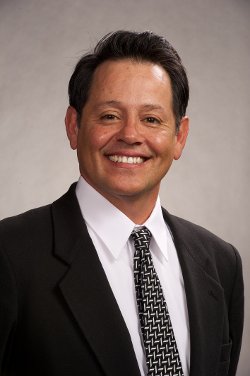José R. López Morín
Latest News
 Professor
Professor
José R. López Morín received his Ph.D. in Hispanic Languages and Literatures from the Spanish and Portuguese Department at the University of California, Los Angeles (UCLA) in 2001. He is a full professor in the Chicana/o Studies Department at California State University, Domínguez Hills, where he has researched, developed, and taught several different courses. These classes include Mexican American Folklore, Intellectual Traditions in the Americas, Introduction to Mexican/Chicano Poetry and Music, U.S. Citizenship and Immigration, Literary Theory and Methods, Introduction to Chicana/o Literature, Research Methods in the Chicano/Latino Community, The Mexican Revolution, Representation of the Indigenous People, and Changing Dynamics in the “Raza” Community.
José R López Morín’s book entitled, The Legacy of Américo Paredes (2006) was printed by Texas A&M University Press. The study is about one of the most important folklorists of the 20th Century who transformed the academic disciplines of folklore and cultural anthropology with his concept ofmestizaje (miscegenation, hybrid, or to mix). Morín argues that Paredes’s theory of culture and form of Mexican American identity exploded the myth of Texas History, the Texas Rangers, and the idea that “racial purity” connotes “superiority.” To date, Morín’s book has received excellent reviews from various scholars throughout the nation, and, presently, Morín plans to complete a Spanish-written translation of his book.
His most recent publications include “In Search of an Authentic Voice: Abel Amaya Coronado, the Ford Foundation, and Chicano Community” in Aztlán: A Journal of Chicano Studies (v.47, no. 2, fall 2022). Taking a micro-history approach, López Morín chronicles Amaya’s personal and professional journey to detail how Amaya impacted—and perhaps even shaped—specific societal events, often separated in time and space. He demonstrates that Amaya benefited the philanthropic organization and Chicana and Chicano academic communities in the fields of teaching, administration, and research as the first Chicano program officer for the Ford Foundation in 1972.
In a case study entitled “Bringing the Community to USC: Chicana/o Student Agency and Abel Amaya’s Leadership Model,” in Southern California Quarterly (vol. 104, no. 3, fall 2022), López Morín argues that Chicana/o student agency between the late sixties and seventies pushed USC to expand its mission to include broader public aims, goals, and justice initiatives, including the establishment of El Centro Chicano (ECC) on the campus. Between his hiring as its director in 1979 and his retirement in 1999, Mr. Abel Amaya’s community organizing and social networking skills transformed El Centro Chicano and the university, bringing both closer together with the larger community and dramatically enhancing student success. Amaya’s initiatives at USC provide a valuable case study in the literature on educational opportunity, retention, and success programs in Hispanic-serving institutions. These recent publications are part of a book biography entitled “Leadership in Turbulent Times: The Journey of Abel Amaya Coronado,” which López Morín plans to complete in 2023.
López Morín’s peer-reviewed publications include “Redefining Epic and Novel through Rulfo’s Pedro Páramo and Rivera’s Y no se lo tragó la tierra.” Mester: A Literary Journal of the Graduate Students of the Department of Spanish and Portuguese. University of California, Los Angeles. Vol. XXII-XXIII, Fall/Spring, Vol. 2-1 (1993-94) pp 63-69; “Interview with Américo Paredes with Héctor Calderón” in Nepantla: Views from South, 1:1. Durham: Duke University Press (2000)197-228; “The Life and Early Works of Américo Paredes” in Western Folklore Vol. 64, No. 1, Winter/Spring (2005) pp 7-28; The republication of “Redefining Epic and Novel through Rulfo’s Pedro Páramo and Rivera’s Y no se lo tragó la tierra” in Short Story Criticism, Layman Poupard Publishing Vol. 242, 2017; and “Some Examples of Cultural Vindication and Integration in the Works of El Inca Garcilaso de la Vega and Américo Paredes” in Border Folk Balladeers: Critical Studies in Memory of Américo Paredes, University Oklahoma Press, 2018.
His other scholarly reviews include “City of Suspects: Crime in Mexico City, 1900-1931” by Pablo Piccato in Studies in Latin American Popular Culture, 21, (2002) pp 261-262; “The Journey to Latino Political Representation” by John P. Schmal in Aztlán: A Journal of Chicano Studies (2008) pp 259-261; and “Sounds of Crossing: Music, Migration, and the Aural Poetics of Huapango Arribeño” by Alex E. Chávez in Anthropos: an international journal in anthropology and linguistics, vol. 114, no. 1 (2019) p. 238.
In addition, José R. López Morín served as an anonymous reviewer of several manuscripts for The Journal of American Folklore in 2009, as an evaluator of federal grants for the Department of Housing and Urban Development (HUD) in Washington, D.C. in 2010, and presented in 2011 at the HUD Hispanic-Serving Institutions National Conference in Monterey, California.